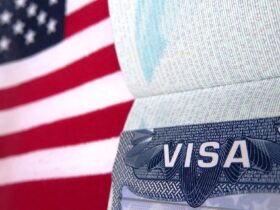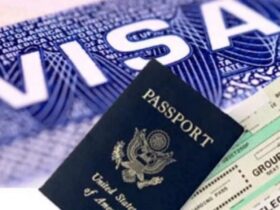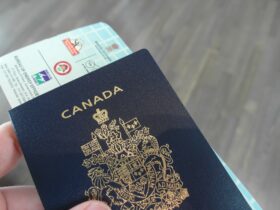Visa scams can be distressing and financially devastating for individuals seeking immigration or temporary residency in Canada. Scammers often prey on the hopes and dreams of vulnerable applicants, exploiting their desire for a better life. However, by being vigilant and well-informed, you can protect yourself from falling victim to visa scams. In this blog post, we will discuss essential tips to help you prevent visa scams in Canada and ensure a safe and legitimate immigration process.
-
Research Authorized Immigration Consultants:
Before engaging with an immigration consultant or representative, it is crucial to verify their credentials and ensure they are authorized by the Immigration Consultants of Canada Regulatory Council (ICCRC). Visit the ICCRC website to confirm the consultant’s membership status and legitimacy. Legitimate consultants follow a strict code of conduct and possess the knowledge and expertise to guide you through the immigration process without resorting to fraudulent practices.
-
Be Wary of Unrealistic Promises:
If an immigration consultant guarantees you a positive outcome or offers a guaranteed visa, it is a red flag. Legitimate consultants can provide guidance and increase your chances of a successful application, but they cannot guarantee specific results. Be cautious of anyone promising quick and effortless visas, as they may be attempting to deceive you or engage in fraudulent activities.
-
Utilize Official Government Resources:
The Government of Canada provides extensive information and resources regarding immigration processes on their official website. Familiarize yourself with the relevant visa requirements, application procedures, and processing times. By relying on official government sources, you can ensure that the information you receive is accurate and up to date.
-
Protect Personal Information:
Scammers may attempt to obtain your personal information, such as passport details, financial records, or Social Insurance Number (SIN). Never share sensitive information over the phone, email, or through unsecured websites unless you are confident about the legitimacy of the recipient. Official immigration channels and reputable consultants will prioritize your data’s security and request information through secure channels.
-
Be Cautious of Unsolicited Communication:
Beware of unsolicited emails, phone calls, or messages claiming to be from immigration officials or consultants. Legitimate authorities will not reach out to you randomly, asking for personal information or offering visa services. If you receive such communication, independently verify the source before sharing any details or engaging further.
-
Seek Recommendations and Reviews:
When choosing an immigration consultant or representative, seek recommendations from friends, family, or trusted community members who have previously gone through the immigration process. Look for online reviews and testimonials from reputable sources to gauge the consultant’s credibility and track record. Legitimate professionals will have positive feedback and a solid reputation within the community.
-
Report Suspicious Activity:
If you encounter a visa scam or suspect fraudulent practices, it is crucial to report the incident to the appropriate authorities. Contact the Canadian Anti-Fraud Centre, the Immigration Consultants of Canada Regulatory Council, or local law enforcement agencies. Reporting scams can help prevent others from falling victim to the same fraudulent activities.
Conclusion:
Preventing visa scams in Canada requires diligence, research, and a healthy dose of skepticism. By following the tips mentioned above, you can safeguard yourself against scams, protect your personal information, and ensure a legitimate and secure immigration process. Remember to stay informed, seek authorized assistance, and rely on official government resources. With these precautions in place, you can navigate the immigration journey confidently and protect yourself from fraudulent individuals or organizations.





